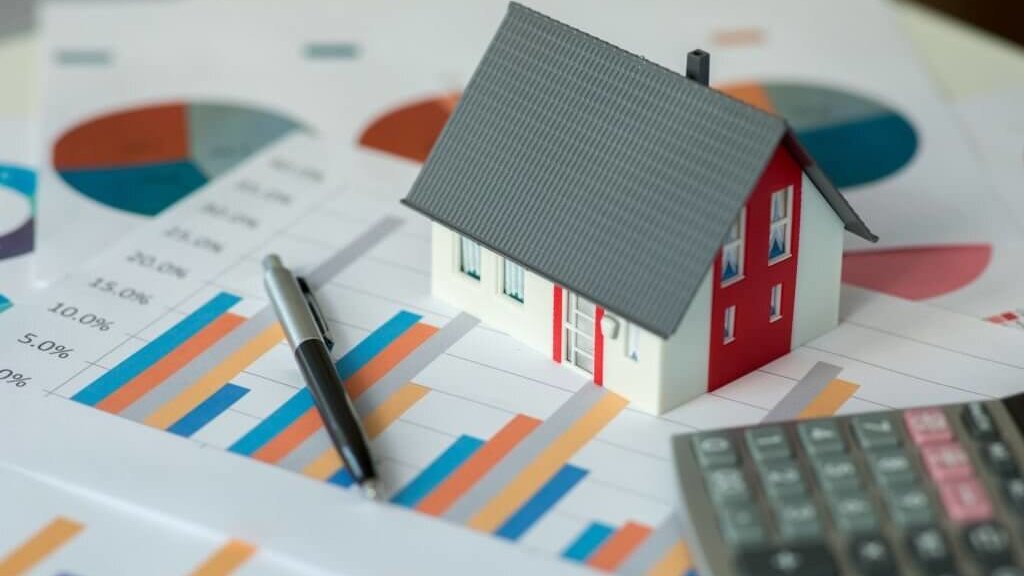New Hampshire, the Switzerland of America, is known for its beautiful mountains, picturesque wildlife, stunning beaches, attractive tourist spots, low-priced alcohol, and cheaper tax rates. It is one of the five states of the US having no sales or income tax. However, many of us know that a government cannot run without revenue and need money somehow to function the government. So, how does the government of New Hampshire collect its revenue? If you are relocating to New Hampshire or living in the state, you must have been familiar with the fact that New Hampshire imposes higher property tax rates on its residents. In reality, property tax is the only primary method to finance New Hampshire’s local government. Here the question arises, what is property tax and how are the property taxes calculated?

Property tax is a tax or annual value paid by the owner (individual, head of an organization) of a property (land, house, office building, real estate property, or rental property) to the local government or corporation of the area. In this article, we will explore and analyze how New Hampshire property tax is calculated along with the fact that how it will influence you during tax filing time.
[elementor-template id=”13242″]
How is Property Tax Calculated in NH?
In New Hampshire, the property tax is calculated based on the annual average property value expressed in percentage i.e. 1.35% or mills. In fact, for property valuation, an amount of 1 mill equals $1 is imposed for every $1000.
Let’s say, if the tax rate is $30, and the value of your property (land, house, apartment, etc) is valued at $300,000, the property tax rate assessed would be $9000.
($300,000 / $1000 )× $30 = $9000
According to a study by a real estate data form of California, New Hampshire along with New York is counted among the seventh highest property taxpayers in the country. A family of four-property owners in New Hampshire paid an annual property tax of $6500 which is the fourth highest value in the nation after Massachusetts.
How is Property Valued in NH?
NH property tax rates of each town are valued based on the estimated property value as of 1st April of the present year. This means that if your property tax bill is due in November, it will show the property value prior to April 1. According to the law, the municipalities’ auditors must periodically determine the estimated value of the property within the towns as of April 1 to keep up-to-date valuation records. As it is a costly and time taking process, the property valuation of each municipality is not revalued each year.
Are there Property Tax Exemptions or Credits?
NH’s municipalities offer property taxes relief and exemption options for specific people or groups in order to reduce the property tax value that they have to pay. It’s not like the property tax is nil for these residents, but is reduced to some extent who mostly need help.
Table 1: Eligibility for Property tax exemptions or relaxations imposed on specific groups or residents of New Hampshire
| Exemption | Explanation |
| Blind exemption | Legally certified Blind residents can avail of this exemption option for up to $120,250 off their assessed home value. |
| Disabled veterans | Legally certified permanently disabled veterans while in-service can avail of this exemption option up to $2000 off their assessed home value. |
| Elderly exemption | Retirees of NH can apply for this exemption if: 65+ on April 1 of the applying year Ownership or co-ownership of the organization NH citizen for the last 3 years Net Annual income < $34300 for singles < $47,200 for couples Other assets of $98,000 or less Exemption over age related deductions are: $73,000 less (age 65-74) $120,000 (age 75-79) $205,000 (age 80+) |
| Less income relief | The annual income of single homeowners earning less than $20,000 The annual income of families earning less than $40,000 |
| Solar energy systems exemption | House owners using solar systems for water management, heating, electricity, and cooling can avail of the exemption by spending the total cost on installation and equipment against the property’s value. |
Source: Property Tax Exemptions

How New Hampshire Property Taxes Work
New Hampshire property tax rates include both local municipality and state property taxes. To find out the principal tax rate, municipal auditors perform annual estimations to determine the property market value by using mass estimation methods to discover property value based on property information and market value.
The estimation process and the value are mostly imperfect as the state has different counties following a bit different estimation procedures. To adjust these differences, the government equalizes the value between the counties.
The differences in the estimation process involve the application of a ratio to the market value of the property to equalize the property values in all counties of the province. This ratio is used to find four different property taxes: the state education tax, town tax County tax, and local school tax, which vary from area to area.
In case property owners disagree with the property valuation amount can submit an abatement request which will lead to a review or sometimes, a refund of paid taxes.
[elementor-template id=”13247″]
New Hampshire Property Tax Rates
The tax rates in New Hampshire are determined by the local government or the state government authorities. Counties, towns, and public schools determine their tax rates depending on their monetary needs. Therefore, the mill rates also vary between the towns and counties making it, even more, easier to distinguish the property taxes among them. Average effective property tax rates are the property taxes in percentage paid as the property value.
The below table presents the list of counties of New Hampshire with their average effective property tax rates imposed on their median home values and the amount paid as median annual property tax payment by the residents.
Table 2: New Hampshire’s counties with their average effective property tax rates charged on median home values, and the median annual property tax paid by residents.
| County | Median Home Value | Median Annual Property Tax Payment | Average Effective Property Tax Rate |
| Belknap | $222,300 | $4,139 | 1.86% |
| Carroll | $236,500 | $3,106 | 1.31% |
| Cheshire | $190,600 | $5,213 | 2.74% |
| Coos | $124,900 | $2,963 | 2.37% |
| Grafton | $220,400 | $4,534 | 2.06% |
| Hillsborough | $265,000 | $5,909 | 2.23% |
| Merrimack | $232,100 | $5,609 | 2.42% |
| Rockingham | $310,200 | $6,293 | 2.03% |
| Strafford | $226,600 | $5,487 | 2.42% |
| Sullivan | $174,000 | $4,715 | 2.71% |
Source: You can calculate your annual property tax rates with the New Hampshire property tax calculator.
Methodology of Property Tax in NH
New Hampshire collects property tax once a year in the month of April 1. After getting the bill, there are many ways to pay the bill at your convenience. To get rid of parking and standing in a queue, you can adopt the following ways:
- Electronic check (ACH): You will need a bank routing number, property tax account number, and bank account number.
- Credit card by IVR: To pay via credit card, you will need a credit card number, CSV number, and credit card expiry date
- 24×7 online service: You can dial 1-800-615-9507 to pay tax online by following computerized instructions.
- In-person payment: You can visit the collection office during office hours from 8 a.m to 4:30 p.m. on every Monday, Tuesday, Wednesday, and Friday. All you need is the coupon and bill inside an envelope for proper credit.

New Hampshire property tax FAQs
Are NH property taxes high?
New Hampshire property taxes are the fourth highest per capita property tax rates among any US state that impose an annual effective property tax of 2.13%. simultaneously, the median annual property tax rate of the state is $5325.
What town has the highest property tax in NH?
As of Jan 1, 2022, Claremont is the highest property taxpayer in New Hampshire paying annually $40.98.
How do I avoid property taxes in NH?
You can’t avoid property tax if you own a property or asset in NH. However, if you are a senior citizen, disabled veteran, disabled person, installed a solar system in your house, or getting less than the New Hampshire minimum wage, you might get charged less percentage of the assessed value of your property.
Conclusion
Tax payment is an important part of an individual’s financial plan. Sometimes tax planning in New Hampshire is neglected as the income and other taxes are nil. However, being aware of property taxes, keeping New Hampshire property tax records, and knowing about reliefs and exemption options gives you information to decide the amount you need to save and pay every year.
Consider buying or selling a property in New Hampshire only when you are living or working in the state and are able to bear property tax expenses. Ideally, it would be best to consult a financial advisor before taking such big decisions, to know whether you are including all relevant variables or not.
Also, check out our state parks in New Hampshire article to explore the best state parks for outdoor recreation in New Hampshire.
[elementor-template id=”13252″]